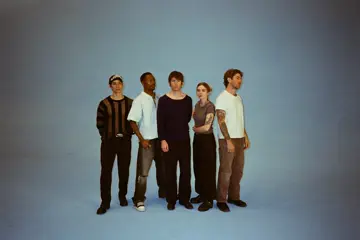FREEHELD

Freeheld was conceived of as a Prestige Picture, but, at best, it’s an Issue Movie. At worst, it’s like a Cancer Weepie crossed with a David-vs-Golitah Courtroom Drama. It stars Julianne Moore as the gruff, no-nonsense, feather-haired Jersey cop whose budding relationship with butch mechanic Ellen Page is kept top secret from the moustachioed bros on the force. The glass ceiling for a female police-officer is low enough, already, she reasons; the closet is the smart career move. But, then come’s a One Year Later edit, and feelgood music, and a dog, and a montage of renovations; and, before you know it, our couple’ve become Legal Domestic Partners, and are one step away from a public coming out.
With record-scratch-sound-effect subtlety, no sooner have they officially shacked up than Moore is diagnosed with late-stage cancer. She wants to leave her police pension to her partner, the state says no, and, lo, we’re moving towards a court-hearing showdown with the artless briskness of a telemovie.
The players are all telegraphed from the beginning: Steve Carell, flaming gay-marriage activist, a fight-the-power agitator; Michael Shannon the one cop on Moore’s side; Josh Charles the local counsellor whose heart is in the right place; Tom McGowan the far-right villain whose God tells him assigning pension rights to queers is a sin. And the final victory is so inevitable that, when the inspirational courtroom-crowd-breaks-into-applause-as-the-string-music-swells scene arrives, it feels less triumphant climax, more perfunctory anti-climax.
The film is written by Ron Nyswaner, who once upon a time penned Philadelphia (and has done little of cinematic note since). Here, he’s transparently trying to pull the same old trick: making an Issue Movie that taps into the contemporary zeitgeist, the dream being that, hopefully, his picture can help forward social progress in respect to gay rights. But his screenplay foregrounds all of this in such obvious fashion that all you can pay attention to is its machinations; its rote turning-of-the-gears seeming more cynical that inspirational. Rather than a tribute to change, Freeheld plays like pure artistic stasis; a seasonal Oscarbait special whose naked lust for of-the-moment social resonance smells like cheap, tacky grandstanding.
MISTRESS AMERICA

Don't miss a beat with our FREE daily newsletter
Noah Baumbach took eight years between Mr. Jealousy and The Squid And The Whale, but those distant days of struggling to mount a production are long, long ago. Six months after While We’re Young arrived on screens —turning a portrait of aging bohemia into a paranoia-thriller whose central middle-aged moral was ‘don’t trust young people!’— Baumbach has returned with Mistress America, with his documentary on filmmaker Brian De Palma, De Palma, already doing the festival rounds.
Such a frenetic output always comes with suggestions of questionable quality (see: Woody Allen’s last 30 years), but Mistress America makes for — and marks — a welcome return. Here, Baumbach’s reunited with muse/squeeze/co-writer/starlet Greta Gerwig, for a collaborative follow-up to Frances Ha, the disarming, shambling, nouvelle-vague-ish tale of late-20s malaise that charmed plenty upon its 2012 release.
Where Gerwig played a character bumbling her way through a life-lacking-direction last time out, in Mistress America she’s a 30-year-old who’s turned dilettantism into a high-art; channel-changing her way through a freelancer’s life with such élan it feels like she’s turned dabbling into competitive sport. She talks fast, talks big, talks herself into and out of holes. She’s full of inspired ideas, money-making schemes, ridiculous dreams, and pithy personal philosophies. And she’s a great character to build a film around: delusional yet delightful, flawed in a fascinating way, full of life and motion.
She’s the titular character, but not Mistress America’s lead. That’s Lola Kirke (younger sis of Girls’ Jemima and songwriter Domino; showbiz family ahoy), a wide-eyed 18-year-old freshman in the Big Apple; bookish, awkward, a little judgmental, feeling as if she doesn’t fit in in the college dorms. Gerwig blows into her life as a Gatsby-esque figure, ushering her into an urbane life of Dirty Projectors shows, bohemian lofts, and contagious bitchiness. Kirke is seduced not only by Gerwig’s social nous, sexual ease, and sense of self, but by the possibilities of adulthood, its capacity for personal reinvention.
Like While We’re Young, Mistress America starts out as an observational, realist comedy about generation-straddling friendship in NYC, only to become something else entirely. After a mid-film stop-off at a fortune teller, the action suddenly shifts, and the tone changes; Gerwig and Kirke heading off on a quixotic road-trip to confront Gerwig’s old enemy, Heather Lind, at her lavishly-appointed, high-modernist home in leafy suburban Connecticut.
Here, Mistress America ratchets up the energy, becoming an ultra-stylised screwball comedy; with Baumbach’s compositions growing more formal and symmetrical. The gleaming white interiors become a canvas for tableaux, with an ever-growing ensemble of ever-kookier characters artfully-arranged, the dialogue zipping back-and-forth. It’s vaguely reminiscent of Baumbach’s old collaborateur, Wes Anderson, only with a caffeinated, exuberant, genuinely zany sense of spirit. It both doesn’t quite work and is a true revelation; there enough excitement in the attempt that you don’t begrudge the radical tonal shift and the awkward, post-screwball dismount.
SLEEPING WITH OTHER PEOPLE
Unless you’re into the tepid tropes of farce or cheap gender stereotypes, most romantic-comedies utterly fail on the second half of their mission: being, y’know, actually funny. Enter Sleeping With Other People, the second film from Leslye Headland, last seen with 2012’s Bachelorette, a film that ‘flopped’ at being another Bridesmaids only because it was too abrasive, cruel, and genuinely crass for the crossover feelgoodz. Here, she gives us a set-up that seems straight rom-com: wise-crackin’ Jason Sudeikis and neurotic Alison Brie meet at a sex-addicts meeting, swear to not bone each other, become best friends, but misguidedly fight off the urge to be (perfect) together.
What comes out of such a set-up, though, is less trad romance, more millennial sex-comedy; the film fast, foul-mouthed, and frequently very funny (a sidewalk fist-fight between Sudeikis and the film’s pseudo-villain, Adam Scott, is suitably ridiculous). As the leads trade zingers and talk over their sex lives and particular predilections, what’s cultivated is, essentially, a sustained air of sexual tension.
At times, Headland even manages to smuggle in sly commentary and genuine emotional nuance; the film charting the many varied forms of relationships — friendship, fuck buddies, foreverz — that can occur between consenting adults. The writing’s convincing enough that you even wonder, at a point, if this will simply be a portrait of what rom-coms seemingly abhor most: an actual friendship between heterosexual male and female. Like, of course it won’t (um, spoilers?, I guess), but it’s a nice that, even if but for a moment, it seems like Sleeping With Other People might have the guts to try.
MAN UP

Man Up also attempts to flog some life from the rom-com dead horse. Like some slasher movie winking at the fanboys in the audience, it delivers its peddled clichés with a sense of enjoyable self-awareness. Here, Lake Bell — In A World apparently convincing the world she could handle a film-long English accent — wears the shame of being a single woman in her mid-30s. She meets-cute with divorcée Simon Pegg at Waterloo Station; where having had a “life-changing” self-help book forced into her hands, she’s mistaken for his blind-date. It’s a slightly-anachronistic hook (do blind dates still exist in an era of Instagram-stalking and Tindr-swiping?) that has the at-first-I-was-pretending-but-then-I-really-liked-you! trope pre-built into the premise.
The film gets by on the comic charms and genuine rapport between Bell and Pegg, who are both performers who can play at conversational spontaneity, mix wobbling awkwardness with sharp wit and have it seem semi-effortless. As their night together progresses, there’s some kookier comic energy that plays as upped ante: Rory Kinnear — the PM who fucked a pig long before David Cameron, on Black Mirror — an exuberant stalker from Bell’s past; Olivia Williams, Pegg’s fantastically snide ex-wife; Stephen Campbell Moore, the jolly-good gent she left Pegg for; spite and malice oft lingering in the air.
Ultimately, the screenplay must submit to format, but writer Tess Moss is happy to let you know that she knows that you know the formula; the trite trotted out with top-down transparency. “What’s your plan? To win her heart?” Kinnear asks Pegg, heading towards that great final-act public pronouncement of passion. “Grand romantic gestures, that’s what it’s all about. Declarations, heart-on-the-line, life-changing stuff.” Pegg retorts that his life is not a power-ballad, only for Whitesnake’s Here I Go Again On My Own to be fired up with due irony; Man Up heading headlong into the cliché, wryly attempting to beat back your cynicism at it goes.














